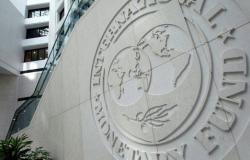“Ordinary racism” is a notion that is back in the news after Pierre-Yves Jeholet (MR) told Nabil Boukili (PTB) that he was “not obliged to stay in Belgium” for a debate on RTL tvi.
Pierre-Yves Jeholet’s comments on the set of Rendez-vous, Sunday June 2, made a lot of people jump out of their chairs. For Patrick Charlier, director of Unia (formerly the Center for Equal Opportunities and the Fight against Racism), the words of the Minister-President of the Wallonia-Brussels Federation resemble “ordinary racism”.
As a reminder, the member of the Reform Movement (MR) had told Nabil Boukili (PTB), during a subject on the wearing of convictional signs, “you are not going to come and give us lessons here in Belgium. There are rules, we respect them. If you don’t like it, you don’t have to stay in Belgium“.
A set of microaggressions
Patrick Charlier therefore speaks of “ordinary racism”, but what is it really? And above all, how is it different from racism?
Maboula Soumahoro, researcher and lecturer at the University of Tours, defines it as “a set of microaggressions that are almost systematic, very common, very frequent and that people experience every day. It can be reflections on names, first names, on origins, on style, on the way of dressing or doing one’s hair… All these little remarks which place the targeted person outside the community. This is ordinary racism and it is much more present, much heavier than this great racism that we all agree to denounce.“
“When we talk about racism, we always talk about it as a defect. However, we should rather approach the notion as an illness from which we must cure“, adds the author of the work “The Triangle and the Hexagon – Reflection on a black identity”.
With the help of Amnesty International Belgium and the Movement Against Racism, Anti-Semitism and Xenophobia (MRAX), we have established a non-exhaustive list of some behaviors and thoughts that can be considered ordinary racism:
“Prejudice is first and foremost a judgment, a conviction produced by an individual or a group before even having the knowledge necessary to form an opinion or an idea on the matter.“, defines Jérôme Jamin, professor of political science at the University of Liège. “Prejudice is based on a biased observation of reality, it is based in particular on the construction of stereotypes. Stereotypes, on the other hand, are negative categorizations about certain individuals or groups.“, he continues.
They take up preconceived ideas: Asians are good at math, Black people smell strong, Travelers are thieves…
This question, and others of course, even if asked without any bad intention, carries a connotation. “The way you ask the question changes everything“, underlines Carine Thibaut, president of Amnesty International Belgium Francophone.
Asking where the person is from implies that they are not from here. “It’s better to ask: ‘Did you also grow up in Brussels?’ rather than: ‘Where were you born?‘”, adds Carine Thibaut. “This leaves the door open for the interviewee to talk about their origin story, but not everyone wants to talk about their story.“.
- A question of gestures
Your behavior can also transmit a certain amount of ordinary racism. “Imagine a young man of color sits next to someone on the bus and that person starts gripping his bag tighter. The reflex would probably have been different if the young person had been an older woman“, image again Carine Thibaut.
- “I’m not racist, but…”
Stop using this phrase, it doesn’t help in any way to justify yourself. It often precedes a racist generalization or stereotype. It reveals implicit biases and attempts to excuse them by presenting them as legitimate observations. This is a way of preparing the ground for a racist remark by trying to clear oneself of any prejudice.
- “I have black friends, I can’t be racist”
It’s a bit of the same ilk as the previous quote. Having black friends does not guarantee the absence of racist behavior or prejudice. Racism can be subtle, systemic and unconscious, and this sentence ignores these complex aspects. This expression prevents any critical reflection or self-evaluation of potentially racist behavior by exploiting one’s relationships.
- “She’s pretty for a…(ethnic group)”
Even if the intention of a remark may be good, for example for a compliment, it is important to be careful with the words used. By saying that a person is pretty “for” their ethnic group, the phrase perpetuates a stereotype that associates beauty with certain groups more than others. This reinforces prejudices about people’s appearance based on their ethnic origin. The phrase implies that, overall, members of this ethnic group are less beautiful, which is demeaning and offensive.
- “It’s not racism, it’s a question of culture”
The phrase seeks to minimize or deny accusations of racism by reclassifying them as cultural differences. By hiding prejudice behind cultural differences, this sentence justifies discriminatory attitudes and ignores that these differences are often used to legitimize racism. It is a way of rationalizing discriminatory attitudes without confronting them. By using “culture” as a justification for discriminatory attitudes, the phrase can devalue the cultures concerned and reinforce implicit cultural hierarchies where some cultures are considered superior to others.
How to cure it ?
If certain remarks or expressions can be deliberately incisive, like that of Pierre-Yves Jeholet, other reflections, these intentional, can be – at best – heavy.
“It is important to rephrase your sentences carefully. Sometimes it’s a problem with vocabulary or wording“, recommends Esther Kouablan of MRAX. “It is necessary to create some sort of awakening to this sensitivity“.
“If I can give white people one piece of advice, it’s to be willing to be honest.“, advocates for his part Maboula Soumahoro. “Be honest and accept this realization which will necessarily be painful. It’s like going to a psychologist. We cannot resolve anything without having awareness, and this awareness is difficult.”
“Then people can educate themselves and find out“, adds the researcher and lecturer at the University of Tours. In Belgium, as elsewhere, there are several grassroots associations working in this direction to raise public awareness and provide support to people who are victims of racism.
Ordinary racism pierre-yves jeholet racism nabil boukili








